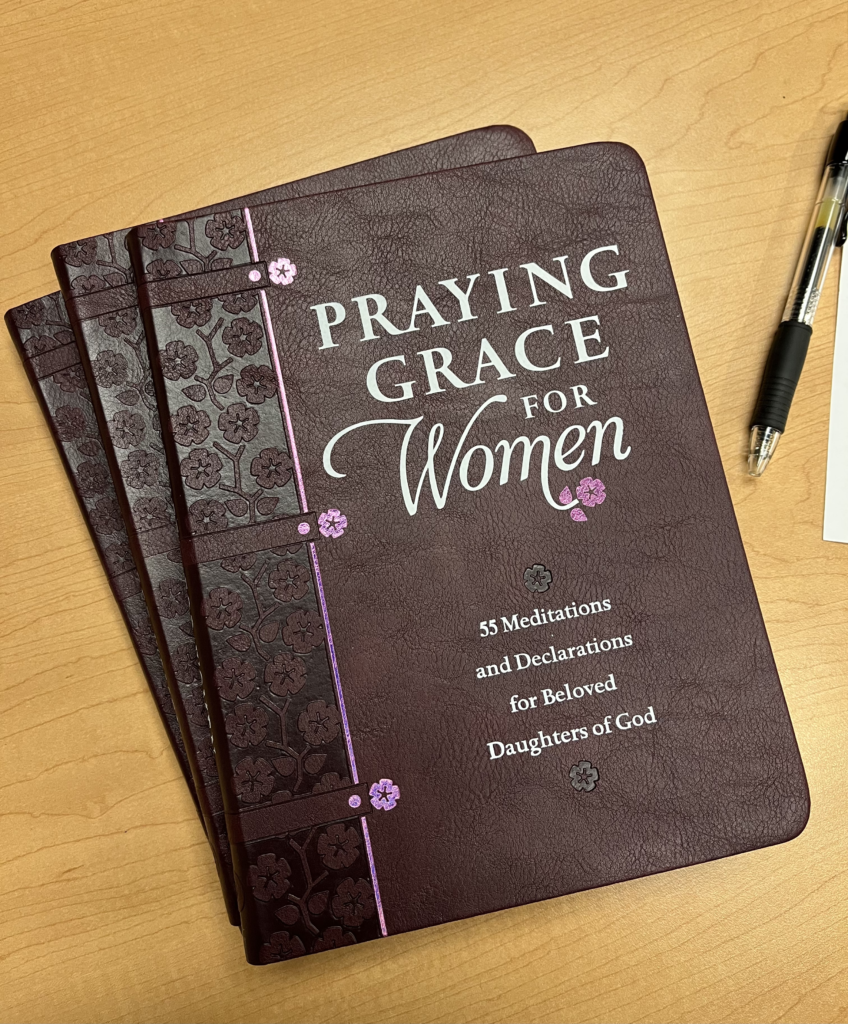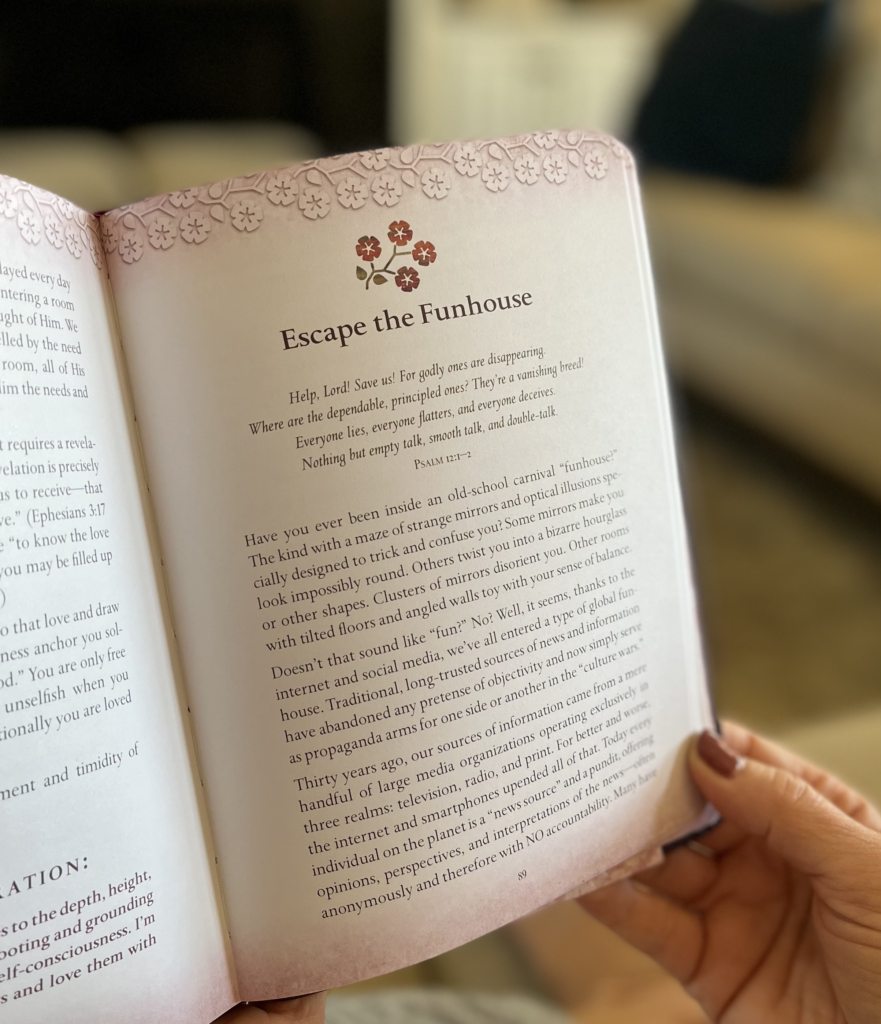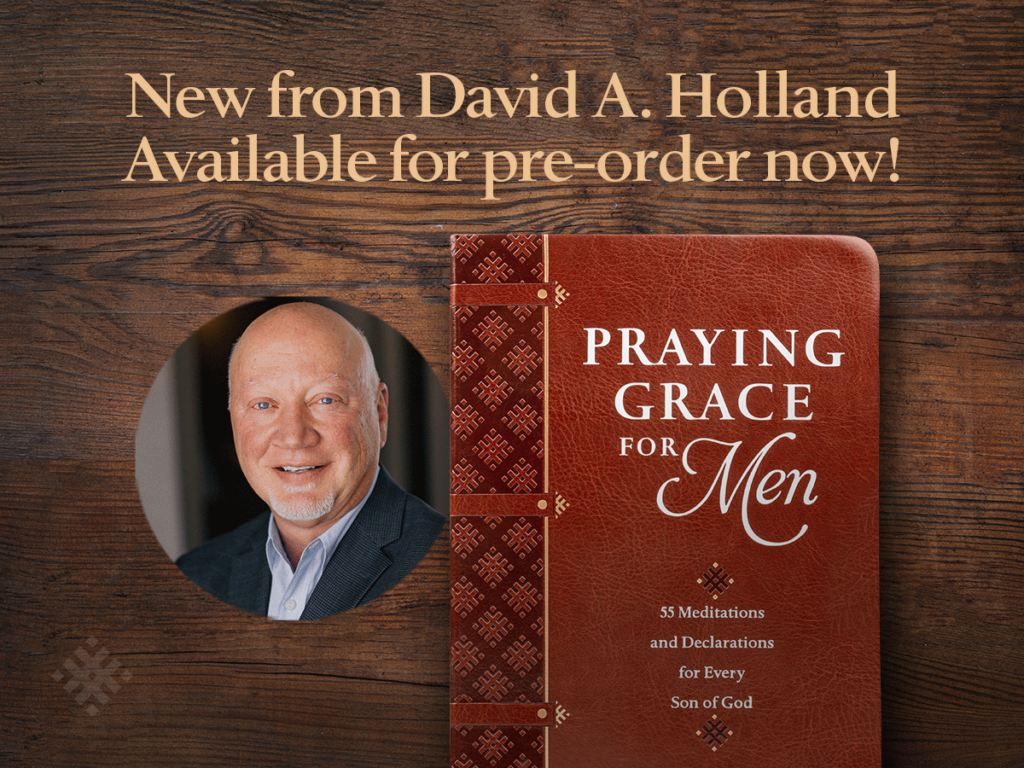
Author Archives →
What a Coincidence
For a change of pace, I thought I’d share one of my favorite evidences for “design” in the universe.
Many planets have moons. For we passengers on planet Earth, we have only one. Earth and moon orbit the sun together–two bodies twirling around each other in a gravitational dance on a cosmic stage.
And of course the sun is millions of times bigger than our moon. And yet . . .
From earth, the sun and the moon appear to be almost exactly the same size. This is a function of the moon’s size and distance from earth.
In a randomly formed universe, the moon could have been any size and any distance from earth. Yet here, on seemingly the only place in this incomprehensibly vast universe perfectly situated to support life, we see this from our vantage point when they line up . . .

Share a Free Sample of My New Devotional

The good folks over at the YouVersion Bible app and the site Bible dot com have graciously provided a seven-day sample of devotions from my newest devotional.
Go “taste and see” that the book is good! Or if you already have the book, how about going over there anyway and using the “share” buttons to give your network of friends the good news. People love free stuff!
The Podcast Has Launched!
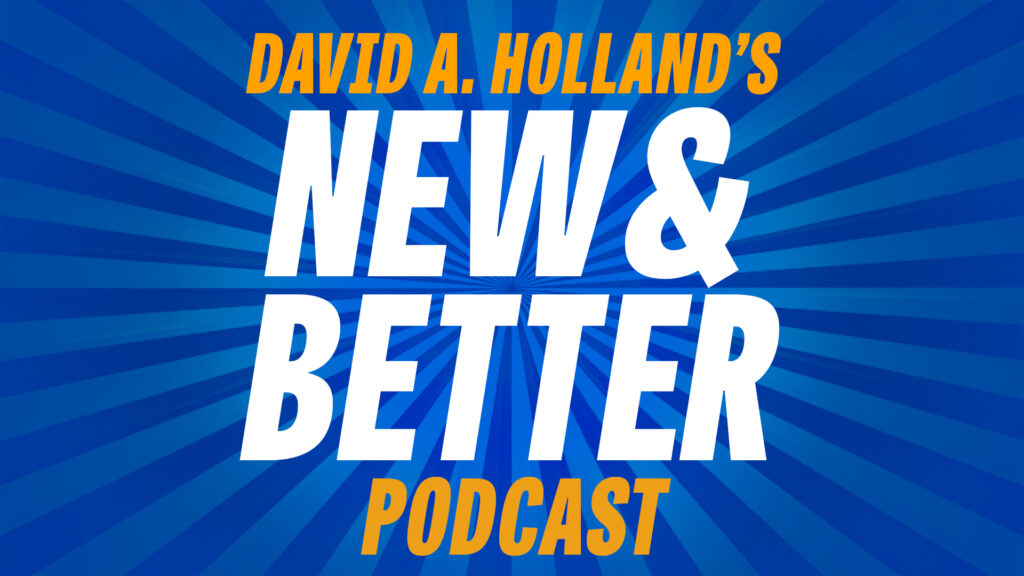
Finally. It’s out there in the wild. A fun and illuminating weekly-ish exploration of the beauties and benefits of the New Covenant; featuring interviews and discussions with leading proponents of grace and rest through the finished work of Jesus.
Where can you find it? Pretty much everywhere podcasts are distributed.
- Spotify
- Apple/iTunes Podcasts
- Amazon Music/Audible
- Et. al.
But if you want the full effect . . . audio AND video . . . you’ll want to pop over to my YouTube channel and subscribe.
Now you can get encouragement and light for living a lifestyle of rest while you workout, do chores, or commute!
“Yahweh, don’t let them get away with this.” (Psalm 35:22)
Over at the Cup & Table Co. blog . . . A word about the “Imprecatory Psalms” and how to deploy these violent prayers in the New Covenant era. Go here.
New . . . from Yours Truly . . .
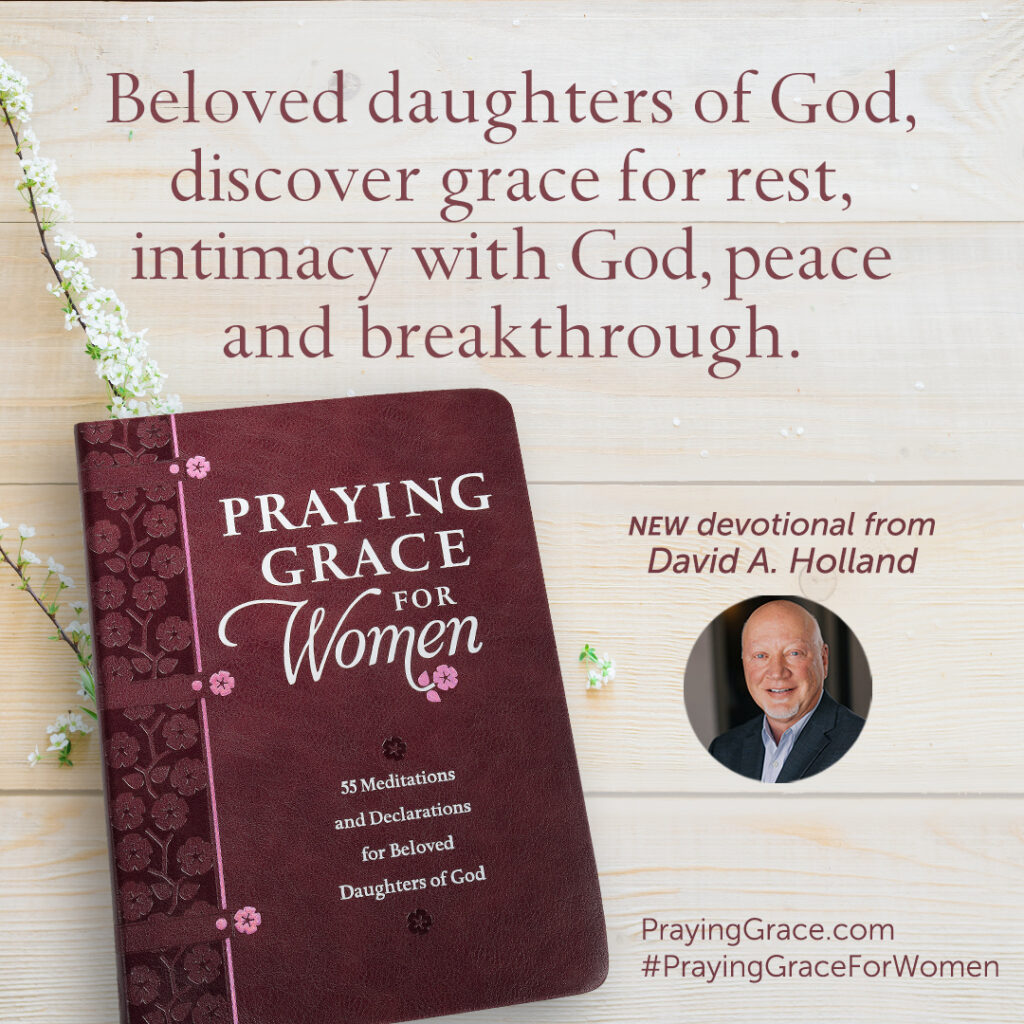
Special Preview Excerpt: “Escape the Funhouse”

My newest devotional, Praying Grace for Women: 55 Meditations and Declarations for beloved Daughters of of God is now available for pre-order on Amazon. I’ve poured 35 years of loving and praying for an amazing wife and three extraordinary daughters into it.
I believe, with all my heart, that it contains truths and keys that are vital for thriving in these times of cultural shaking. Such times can be disorienting, which is the subject of this particular entry, which lives in the section titled “Grace for Peace”:
Escape the Funhouse
Help, Lord! Save us! For godly ones are disappearing. Where are the dependable, principled ones? They’re a vanishing breed! Everyone lies, everyone flatters, and everyone deceives. Nothing but empty talk, smooth talk, and double-talk. Psalm 12:1–2
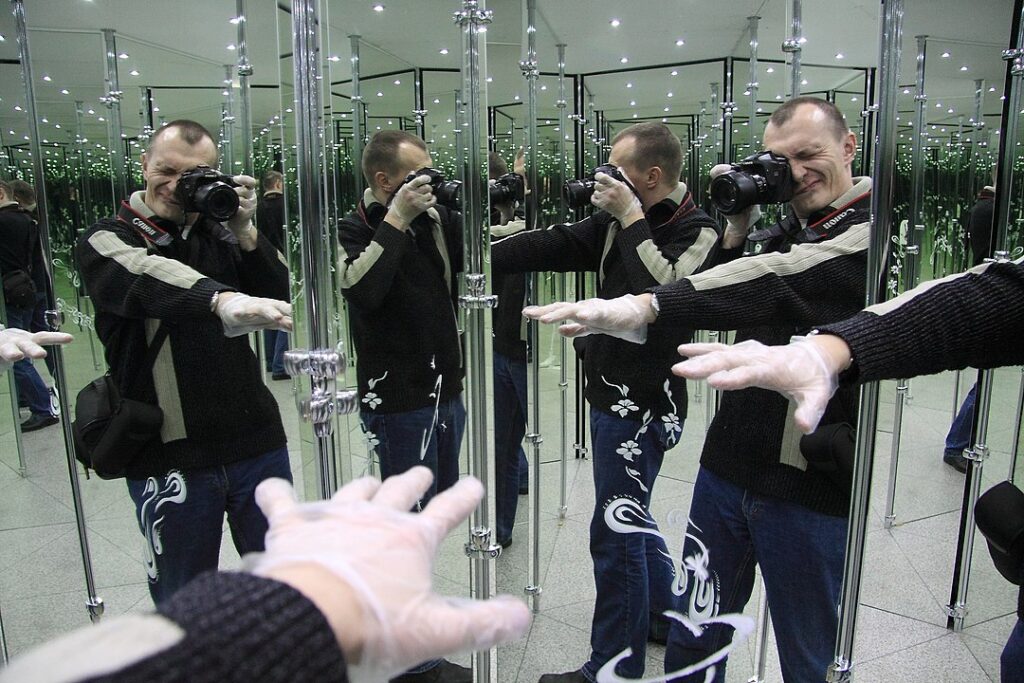
Have you ever been inside an old-school carnival “funhouse?” The kind with a maze of strange mirrors and optical illusions specially designed to trick and confuse you? Some mirrors make you look impossibly round. Others twist you into a bizarre hourglass or other shapes. Clusters of mirrors disorient you. Other rooms with tilted floors and angled walls toy with your sense of balance.
Doesn’t that sound like “fun?” No? Well, it seems, thanks to the internet and social media, we’ve all entered a type of global funhouse. Traditional, long-trusted sources of news and information have abandoned any pretense of objectivity and now simply serve as propaganda arms for one side or another in the “culture wars.”
Thirty years ago, our sources of information came from a mere handful of large media organizations operating exclusively in three realms: television, radio, and print. For better and worse, the internet and smartphones upended all of that. Today every individual on the planet is a “news source” and a pundit, offering opinions, perspectives, and interpretations of the news—often anonymously and therefore with NO accountability. Many have an axe to grind, a viewpoint to sell, a grudge to settle, or a cause to advance. Some deliberately lie. Many unwittingly share false or misleading information with their network of friends.
Perhaps the psalmist David prophetically saw our predicament when he wrote his cry of “Help, Lord!” to begin today’s key scripture passage. In a funhouse environment, you can’t trust your own eyes. In a similar way, you can’t even trust your own brain because of something psychologists call cognitive biases. For example, confirmation bias causes you to notice “facts” that harmonize with what you already believe while making you generally blind to information that contradicts that belief.
So, is there any good news here? Yes! David delivers it in verse six of the same chapter as today’s key passage:
“For every word Yahweh speaks is sure and reliable. His truth is tested, found to be flawless, and ever faithful. It’s as pure as silver refined seven times in a crucible of clay.”
Psalm 12:6
You have a sure, reliable, trustworthy, ever-present source of information and guidance living right inside of you: the Holy Spirit of God. “The Helper,” Jesus called Him. More trustworthy than your own perceptions and thought processes, He is your way out of the funhouse.
Prayer of Declaration:
The Holy Spirit is my Helper; I shall not be deceived. Today and every day I turn my attention away from the flattery, lies, and deceit of this world’s information systems and toward the faithful flawless Words of my God. I trust in Him and do not lean to my own understanding.
Praying Grace for Women, “Escape the Funhouse”
New! And only for God’s Daughters
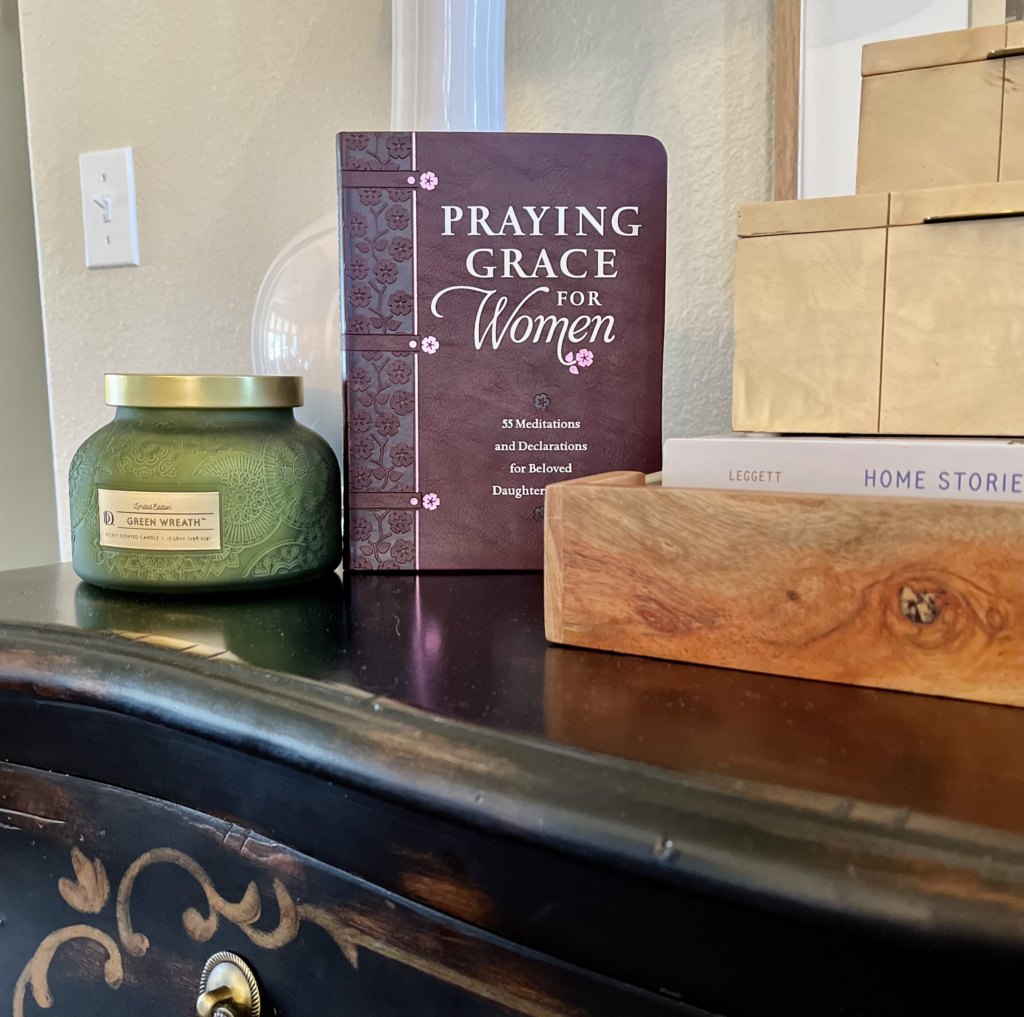
My newest devotional, Praying Grace for Women, is now available for presale on Amazon. And I bet a question popped into your mind the moment you saw the title. It’s a question I address directly, right out of the gate in the Introduction to the book. Here are the opening paragraphs . . .
I know what you’re thinking: A devotional for women by a man? My hope is that you’ll give me the benefit of the doubt and dive into a few of the entries here before you dismiss me. I had compelling reasons to write the collection of meditations you hold in your hands.
For one thing, my journey through life has gifted me with a front-row seat for what daughters of God battle daily and what causes them to thrive in God. You see, I’m in my fourth decade of marriage to one such woman. I love and admire her more than I can express. I really, really like her, too. I know it’s a cliché, but she is my best friend.
Together, we were gifted with three daughters who, by God’s enabling grace, we’ve watched grow into remarkable women of God. Now our babies are having babies, and of our seven grandchildren, we count five girls in the mix. I’ve been surrounded by glorious femininity for about as long as I can remember.
I’m confident that if you were to ask any of these ladies if I have some helpful spiritual insights to share about appropriating God’s abundant grace for rest, peace, intimacy with God, and breakthrough, I’d get a rousing endorsement from them. (At least from the ones who can talk.) Secondly, spiritual truth is spiritual truth. I was profoundly encouraged to discover my previous book, Praying Grace: 55 Meditations on the Finished Work of Christ, had struck a chord with many women. I’ve heard from many who expressed profound gratitude for that devotional over the last few years and have let me know that they are on their fourth, fifth, or ninth pass through the work. I believe this collection will also find a treasured place on the nightstands and end tables of many women of God.
Like my previous devotionals, Praying Grace and Christmas Grace, these 55 entries provide a key scripture verse, a meditation on that verse, and a special kind of prayer–a prayer of declaration–the puts the truth of that scripture on your lips.
All of them reveal life-giving insights about God’s goodness, the depths and breadth of Jesus’ complete redemptive work on the cross, and very importantly, what the work means for you.
The devotions are divided into four sections:
- Grace for Rest
- Grace for Intimacy with God
- Grace for Peace
- Grace for Breakthrough
I’m hoping you’ll order in now. Why would you order a book that won’t be available for three more months? There is only one reason. It will help and bless me. Preorders are helpful to authors, especially ones that no one has ever heard of (like yours truly).
I wrote out of love for these people:
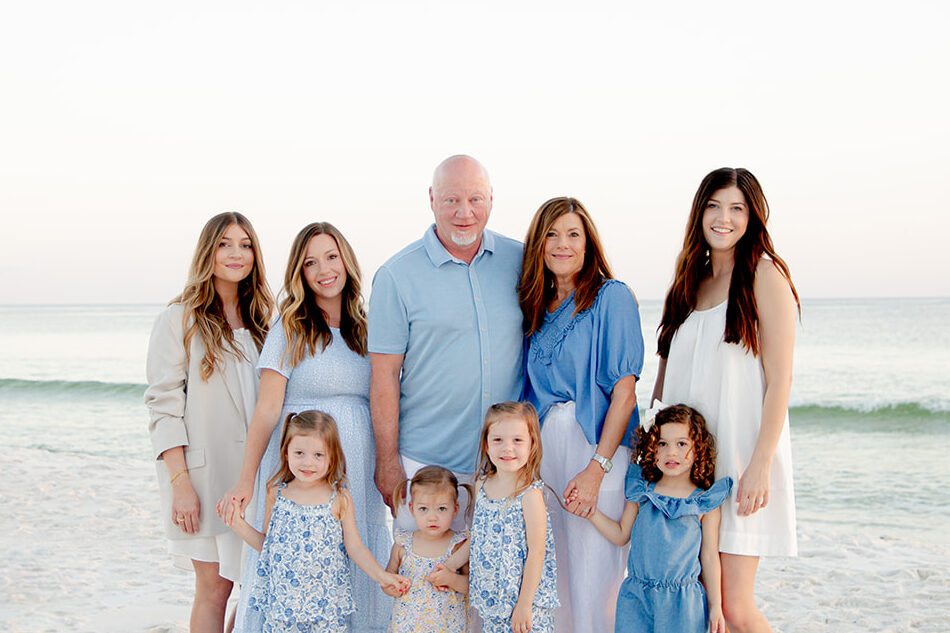
Praying Grace for Women contains things that I want the women I love the most to know the best. I suspect it will bless you or the woman you love the most, too.
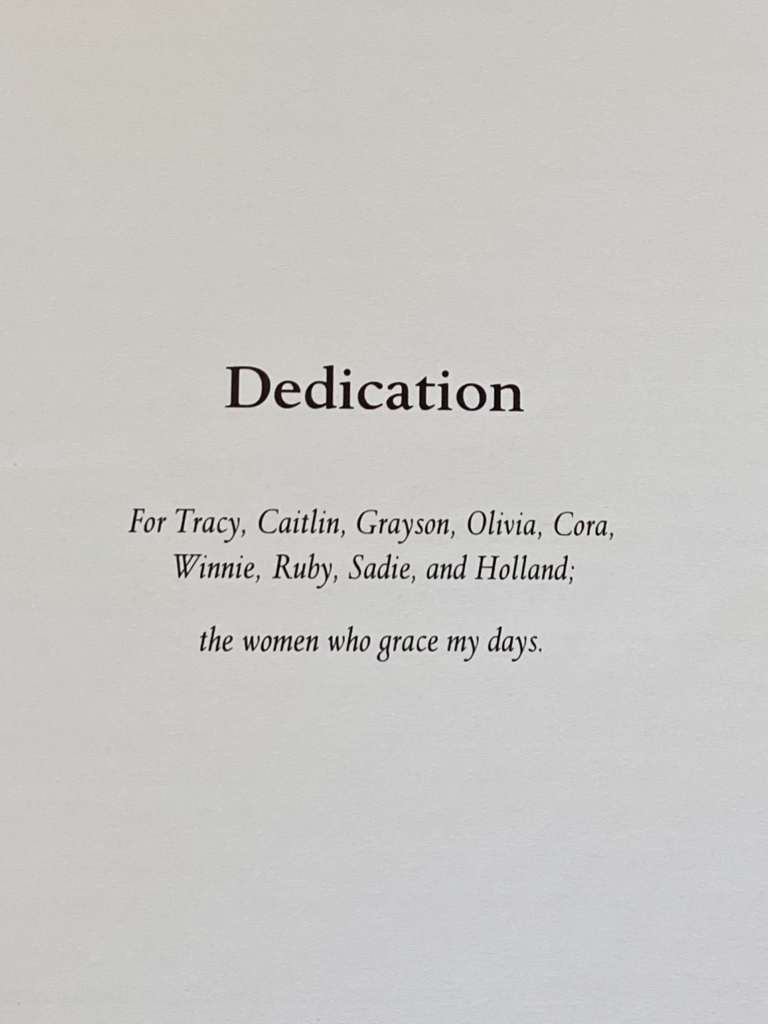
What Child is This?
Ducks-Slightly Limited
One of the pleasures of the way our house is situated is seeing waterfowl from the back patio pretty much all year ’round. Great Blue Herons; White Herons; Cormorants are all frequent sights. And of course, ducks and geese of many varieties. (Sound up for commentary.)

